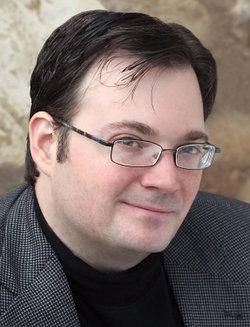
Interview with Brandon Sanderson
Earlier this year at Minicon, I sat down with Brandon Sanderson (author of the Mistborn and the Stormlight Archive series, amongst others). We discussed his future works, White Sand, worldbuilding, which of the three ta’veren is better with women, and more. Read our interview below!
Rebecca Lovatt: I’m going to skip asking you to tell us about yourself, I think you’re already fairly well known. But are there any stories about yourself that readers wouldn’t know?
Brandon Sanderson: Oh, I’m sure there are tons of stories about myself. The one my dad told at my wedding is a fun one. My parents, like any normal people, will occasionally let certain words slip through their lips around their children that they probably don’t want their children repeating. I was 4 or 5 and I had learned to say, from my father, certain expletives. And I walked around saying them all the time. So my parents had to sit me down and say, “Ok we don’t say these words because they are bad words.” So I said, “All right, I got it.”
I’m a Mormon, and in the LDS church children are assigned to talk in their own meeting. Your talk is like 30 seconds when you’re a 5-year-old, and you’re just supposed to get up and say, “I like Jesus,” and that’s the end. But I decided I would talk about these words, with nobody knowing, even my parents. So I got up in front of all the little primary kids and I said, “We don’t say ‘oh shit’ because it’s a bad word.” And then I proceeded to talk about all the bad words I knew–to the other kids. That was my talk.
So there you go, Brandon swore from the pulpit in Mormon church when he was a kid.
RL: Well done, corrupting the youth.
RL: Anyway, your first published book Elantris came out 10 years ago next month. You’ve had quite a journey since then; you’ve published 15 novels and half a dozen novellas. What’s been the most surprising or interesting thing you’ve learned along the way? I’m going to exclude anything pertaining to the Wheel of Time.
BS: One of the most interesting things was how fast the fans became experts in the world. Bigger experts than I thought they would become, and faster. But I knew that was going to happen, because I was a Wheel of Time fan and I knew what the fans did for the Wheel of Time. So it was more of a mark of honor to me that they actually doing this for me. I’m surprised to see it happening for my books, though I’m not at all surprised that they can do it.
I think the biggest surprise is how little time I would have to actually write, after I became a writer. I had more time to write when I had a full-time job than I do now, because then I was working a graveyard shift at a hotel, and I could write overnight. I had a good six hours of writing time every day despite being a full-time student and having a full-time job.
Now that I’m full-time as a writer, I travel and tour and do interviews. These things are all important, and I enjoy them. But what it means is that I just can’t work as much as I used to. I became a storyteller because I love doing the storytelling part. It’s like I have to squeeze it between the cracks sometimes, the thing that actually is my job.
RL: Well, at least with your teaching you are helping others tell their stories as well.
BS: Yeah, and that is very satisfying.
RL: What would you say your proudest moment has been along this journey of 10 years so far?
BS: There have been several of them, the same type of moment. It’s when people come up to me, and they say to me, “Brandon I was not a reader, and your books turned me into one.” Because my story, which people can find because I’ve told it a thousand times, was that I was a reluctant reader. I didn’t like books until fantasy novels changed me. I got into this because I thought, “I have to learn to make people feel like Anne McCaffrey made me feel.” So in those moments when they say that, that’s when I know I’m doing what I set out to do.
A close second is when they tell me I kept them up late at night. I feel nice and evil when I’ve done that.
RL: You have caused me many many sleepless nights. Like the moment I got Words of Radiance—I think I finished that in two or three sittings. Coincidentally, I did not finish my assignment that was due the next day.
BS: Excellent. Corrupting the youth again. That is the theme of what I do in my life.
RL: You evil mastermind. And just touching on this again, do you have any tentative dates for the sequel to Elantris?
BS: I really don’t. I was wanting to try and do it for this year, but the fact that I have Stormlight on my plate means that I won’t. The time to have been able to do that would have been last year, but I wrote the new Wax and Wayne novels instead. It is going to happen—in the timeline of the Cosmere it needs to have happened by the time that I am doing Mistborn Era 3; the 1980s-level-technology trilogy. We need to be caught up on where Elantris is, so that the whole Cosmere timeline can happen. So it will happen, but I know it won’t be for at least another few years.
RL: How much time do you spend during the initial planning stages of writing your novel, developing your magic systems and going through the laws and such?
BS: It really depends on the book. For Steelheart, I didn’t need very much. On that I’m using a superhero-themed story, and all I really needed to know was: How people did people start getting their powers? How are their weaknesses developed? How are these things interrelated? From there I can just look at each power set and say, “Okay, this person has this power set.”
You don’t have to extrapolate quite as far with superheroes. At the same time, they are very limited magics that only work within a certain small realm, so the reason you don’t have to do as much extrapolation is because there isn’t as much to do. In that case, it was the matter of a week.
With something like the Stormlight Archive, it was a matter of months or years of working on the magic systems. It really varies.
RL: Makes sense, you know, Stormlight’s a tiny bit bigger.
BS: Yes it is, and the worldbuilding is a lot more challenging.
RL: And do you have to do a lot of research for the magic systems or is most of it just imagination?
BS: It really depends on the magic. For instance with some of them I need to work out the physics. For Mistborn, I often have to go my assistant and say, “Peter, go do the math.” I used to have to look at the math myself and things like that. Mistborn magic is very science-derived, so looking at the math is essential.
For another system I’m developing right now, which is kind of electricity-based, I have to do a ton of research and read up on it. For other systems, not as much. It just depends.
RL: The electricity-based one, is that relating at all to the novella you just put out?
BS: No. The electricity one is Dark One. The original idea for the setting for that book is how Nikola Tesla wanted to provide wireless energy to the world, and the experiments he did. I want to have a planet where that is just the natural state of the world. The ground there has an electric current you can harvest; you can set down a lantern on the ground and it will glow, drawing a current up through it into the air or down from the air into the ground. I haven’t decided which way it’s going to go yet.
Along with that I want to have interesting ecological features. Big toad monsters shoot out a taser tongue—they use spittle that somehow conducts electricity back and forth. Stuff like this. I want to have electricity be my fun theme. The problem with that again is that is very science-based. When I make a big change to the world, like that you can draw an electric current from the ground, then I have to try and figure out the science of how that works.
RL: Yeah, especially because you have bodies of water. That seems like it would be fun. You’d suddenly become 10 times more scared of rain.
BS: Yes, if it rains, lightning is going to happen constantly. So how do we deal with this? I’m tempted to make it not rain—but then making it not rain is yet another big change, so where do we go there? So that one’s got lots of extrapolation to do, but I have some friends who are much better at these physics questions then I am. So I’m going to them, and they are pointing me in the right direction.
RL: Fun, I’m looking forward to that one. The Reckoners, it’s got a lot of a comic book feel with superheroes. Are there any plans at all for that to be adapted to graphic novel or anything?
BS: Not right now. The graphic novel rights would be owned by the people doing the movie, and if they ever get the movie off the ground then I would say they probably will do a graphic novel. I toyed with graphic novels for many years when I had the original idea for it, but the fun of Steelheart was me trying to take comic book tropes and do them in the novel form. You’ve seen how movies have taken comic book tropes and turned them into films, and I really have enjoyed that. But they do very different things; it’s like its own new genre, the comic book film.
I wanted to do the same thing for books, thinking, what are the strengths for a prose narrative as opposed to a more visual storytelling method?
RL: It’s just one of those novels that when you’re reading it, it seems like it could be easily adapted and it would suit either.
BS: Yeah, I would love to see it adapted, but there are no plans right now. The graphic novel we are working on right now is White Sand, which is one of my early unpublished novels. We felt we could adapt that to take the poorly written stuff out and leave the awesome stuff.
RL: Do you have any updates for the progress of that?
BS: Yeah, it’s going really well. We just got a sample of the cover art for the first volume. I think they are collecting 6 chapters in a book, and there will be 18 chapters total. So three volumes, and I think we are almost done with the first six. One of the things that I told them is that I really want to be far along in this project before we release anything. Because the Wheel of Time fans got burned on their comic.
I think that there have been enough instances of things like that, so I want to be able to produce something complete and say, “Look, we’ve got this much of it done and this much more to do. We’ve at least got the first 6 chapters, a complete book you can read.”
RL: Or it’s like, we’ve got all this and it’s only six months to the last one, it’s not 2, 3, maybe 4 years.
BS: Exactly.
RL: Switching topics, your battle scenes are completely epic. Do you have to do a lot of research learning different battle stances and techniques?
BS: I’ve done a lot of that in my life up to this point, so I draw on that. I write the scene and then I go to the experts. I read through sources and try to look for where I’ve done it wrong. I can usually do it right enough on the first write because of my experience, so that the first write is not fundamentally flawed, it’s only flawed in little places.
I do a lot of reading of tactics and things like The Art of War, which was a very big help. A great place to get this type of thing is from good historical novels, but there are some good pop culture books as well. There’s one I’m going to look up and email you about because I always forget the author, that you can read to give you an idea how different cultures have approached war.
It’s sitting on my shelf—I can picture the cover, but now the name escapes me. Guns, Germs, and Steel is a famous one that is very good, but there is a better one on the history of warfare. I’ll have to send the name of that to you later. [Confirmed later: it is A History of Warfare by John Keegan.]
Anyway, the pop science, pop history books I look at are more accessible than straight history books. They’re written to be readable, for a mass audience, and they give me just enough to write the basics, and then I can polish the edges by going to an expert.
RL: Not one where you have to read through the dry crusty pages.
BS: Yeah, and really what you are looking for is the concepts. How different cultures fund a war, how they treat a war, and then you really only need some basic tactics. What are the different types, why would people use cavalry and what was the importance of cavalry. You get that from reading the history of warfare. I remember when I read how important the stirrup was as an invention—being able to fire bows from horseback, and why that changed warfare.
Suddenly I could construct a battlefield where I could say oh, okay, now that I understand why the stirrup is important, I see why this unit is important, why having a cavalry is important. I can now have them enter my battlefield in a way that undermines what someone else is trying to do, because I know the importance of the stirrup. Learning just a few fundamentals like that is essential. What the difference was between the way the Romans approached war and the way a medieval army approached war, and why the introduction of peasant warriors was so important, and things like that.
RL: As well as the importance of stirrups, and how they can support the huge magical armor.
BS: I still needed magical horses for that armor, but it’s nice that I can have magically enhanced armor and make it all work together. The other big thing people have to remember about Roshar is it’s point-seven gee, which helps a lot with things like this. 70% Earth gravity.
RL: Yeah, I feel like it might be a big more difficult with our gravity.
BS: It would be definitely more difficult. In fact when they get off the planet it’s going to be a different experience for them, going to something like Scadrial where they have Earth gravity.
RL: So is that something we are going to be seeing?
BS: Eventually, but not for a while.
RL: Because I was thinking when the Cosmere starts concluding, just multi-Cosmere world battles kind of things…or?
BS: These are in the works.
RL: No worming out information by coming up with theories on the spot?
BS: You may come up with all the theories you want, but I’m not giving you any information.
RL: Fair enough. I had to try.
BS: It’s too many books away.
RL: Yeah, I suppose there are probably a few years between now and then.
BS: There are.
RL: You’ve done a lot of books; you’ve been writing for a long time. At this point in your career does it feel like more like a work job than play?
BS: No. Telling the story still gives me the same feeling. You have to remember that by the time I broke in, I’d been doing this for ten years already. I’ve been doing it another ten now, so the breaking-in point was only the halfway point so far in my career. I still do what I used to do, which is jump to wacky new stories as they occur to me.
I think when you should start to worry is when I stop doing that—when I stop coming up with some weird thing that I have to do instead of writing the next book, or when I decide I’m going to write two Mistborn books because I have some great idea for the second one. When I stop doing things like that, worry. So if you start getting Stormlight books only—as you all want—that’s when we are actually in trouble.
RL: Or if you go to a convention and don’t play Magic.
BS: Yeah, if I don’t play Magic, that would be bad!
RL: I think everyone would just be truly concerned.
BS: That is my reward for coming and doing publicity and things like that at the convention: I get to go play Magic.
RL: I remember when you were at Polaris, we left a bunch of Magic cards on your hotel bed as your welcoming gift.
BS: That was one of the best gifts I’ve ever received.
RL: I’m glad you liked it.
BS: I opened those with glee.
RL: I’ve been trying to avoid Wheel of Time questions, but I’ve got one. We need to settle the score… who understood women better: Mat, Perrin, or Rand?
BS: Oh wow, who understood women better? So I’ll say this: Perrin understood his woman better than Mat or Rand understood the women that they were interacting with. Does that make sense?
RL: It does.
BS: I’m going to go with Perrin. Although by the end of the book Rand has recalled his past…no, Lews Therin was terrible with women, so I don’t know. I’m still going to vote Perrin.
RL: That’s not just because he’s your favorite?
BS: No, I’m going to say it’s because he understands human nature the best, despite having this whole wolf side. Or maybe it’s because of this whole wolf side that he’s able to look from an exterior perspective at the way humans are doing the things they are doing, and relating it.
Once you experience another culture, it makes you understand your own culture better. Living in Korea helped me understand some of the dumb stuff we do as Americans. It’s the same thing as when you study another language, you suddenly understand English better. I think that Perrin learning another species gives him a perspective on this that no one else has. That’s what I’m saying, and I’m sticking to it.
RL: Do you mind if I ask one more Wheel of Time question? After a Memory of Light, Mat did he lose his luck, is he still ta’veren at all?
BS: My perspective—now, I’m not speaking from a perspective of knowledge because Robert Jordan does not say in the notes, at least not that I saw. Speaking as Brandon the…very enfranchised fan and extra knowledgeable fan, but not as author of the series, I think he kept his luck but lost a portion of it. Meaning the luck is inherent to him, from the fact that the Heroes of the Horn know him as the Gambler. Luck and gambling are associated with him through all of his past lives, and I think that he naturally has some of that. When he was ta’veren it amplified and manifested, but he would still have it.
RL: I was curious about that.
BS: And I don’t even know if he’s not ta’veren anymore.
RL: I remember in one of the books they said that they weren’t always ta’veren for their whole life.
BS: I think he expects that he’s not anymore, but of the three he’s the one that’s still the center of global politics at the end of the books. If any of them was going to remain ta’veren, it would be him.
RL: Fair, and silly question. If you were a Magic card which one would you be?
BS: If I were a Magic card which one would I be? Uhm…I don’t know. I would be blue-white or mono white.
RL: Why?
BS: The personality I have is probably blue-white. Meaning that I am pretty straight-arrow Mormon; it’s going to be hard for anyone who is straight-arrow Mormon to be anything but white. You mix that with the fact that I’m a writer for my profession; the storyteller is very blue—it could be red or blue, but I’m not very impulsive. So I’m going to say something blue-white. I would have to look and decide what card I am blue-white, but I’m definitely blue-white.
RL: All right, thank you! It was a pleasure chatting with you again. I hope you enjoy the rest of the convention.
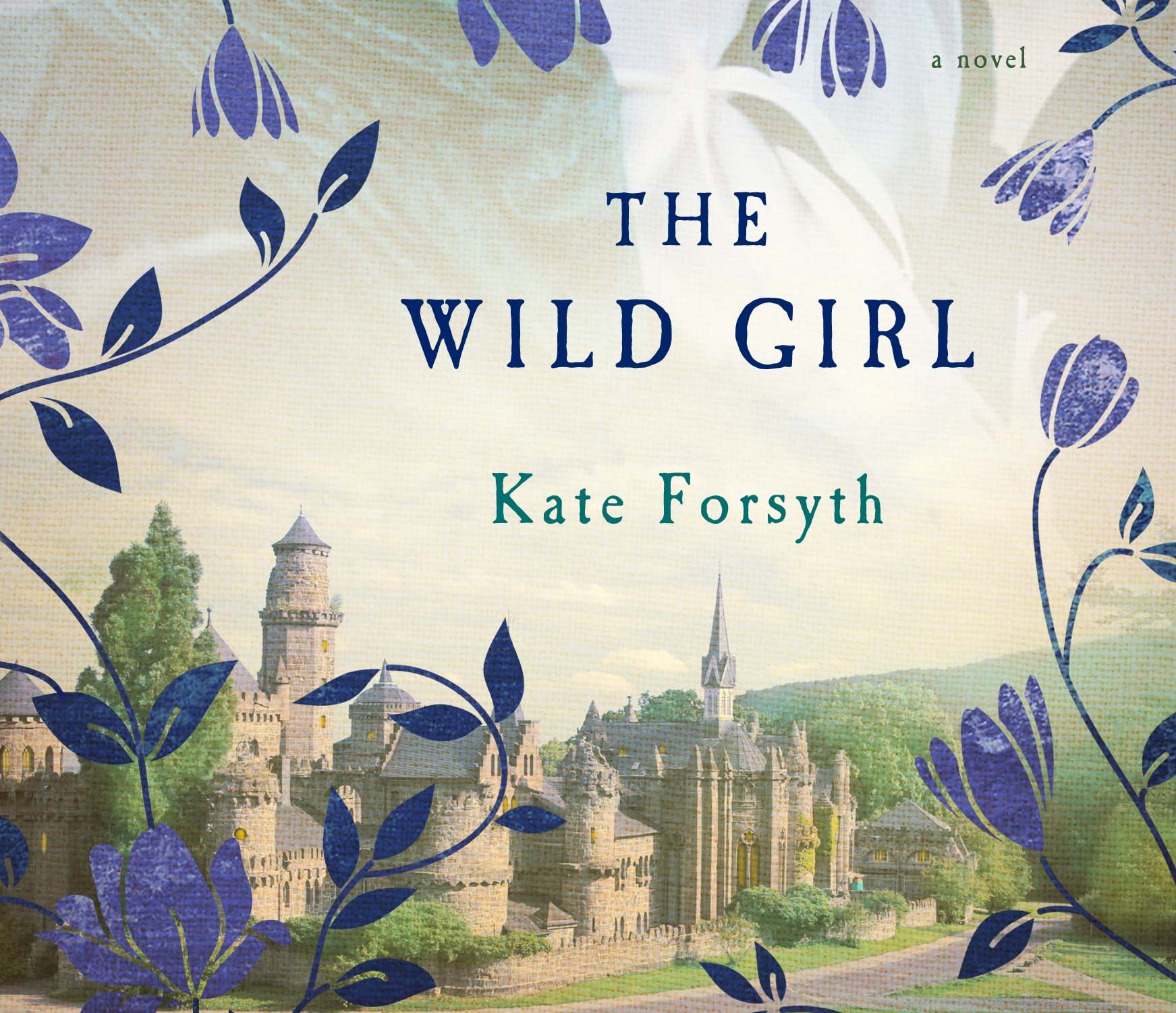

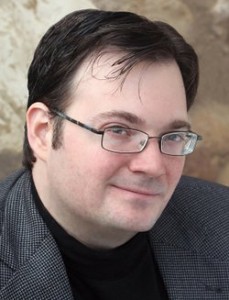
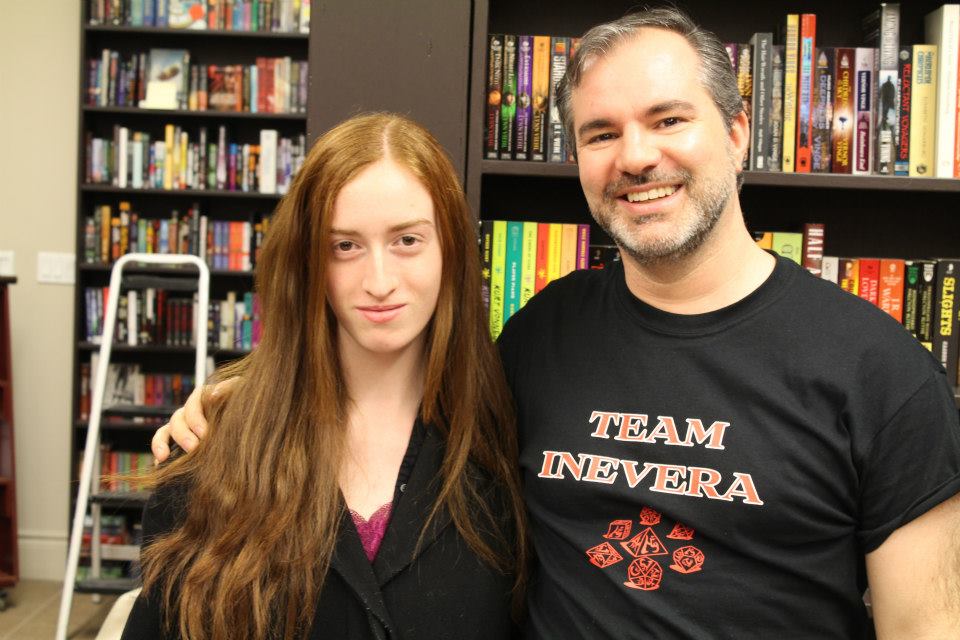
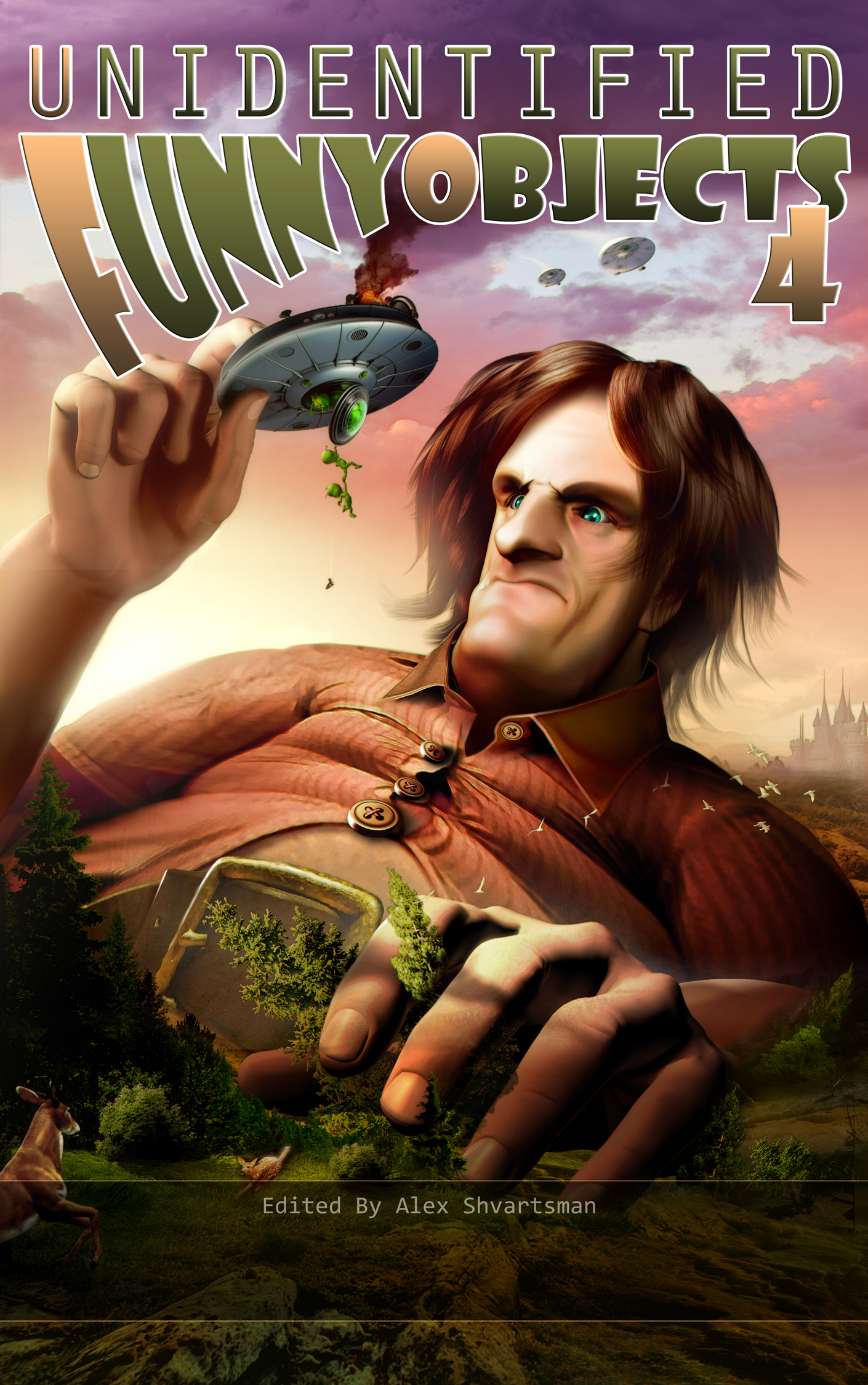
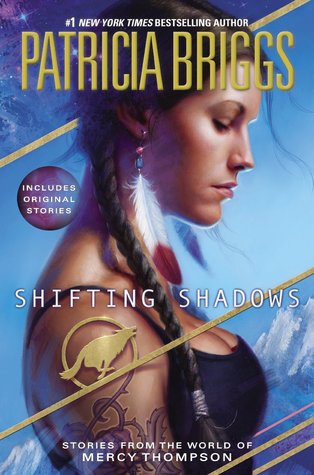
5 Comments
Douglas File
Great interview. I really enjoyed it. I did notice a slight error:
RL: How much time do you spend during the initial planning stages of writing your novel…..
BS: …….All I really needed to know was: How /people did people/ start getting their powers?
Rebecca Lovatt
Hey Douglas,
I’m glad you liked the interview!
Thank you for pointing out that error. I’ll fix it when I’m next at a computer. :)
Rebecca
Andy Angel
A very good interview Becca
Rebecca Lovatt
Thanks, Andy! Glad you liked it. :)
James Schmidt
Awesome interview! Thanks!